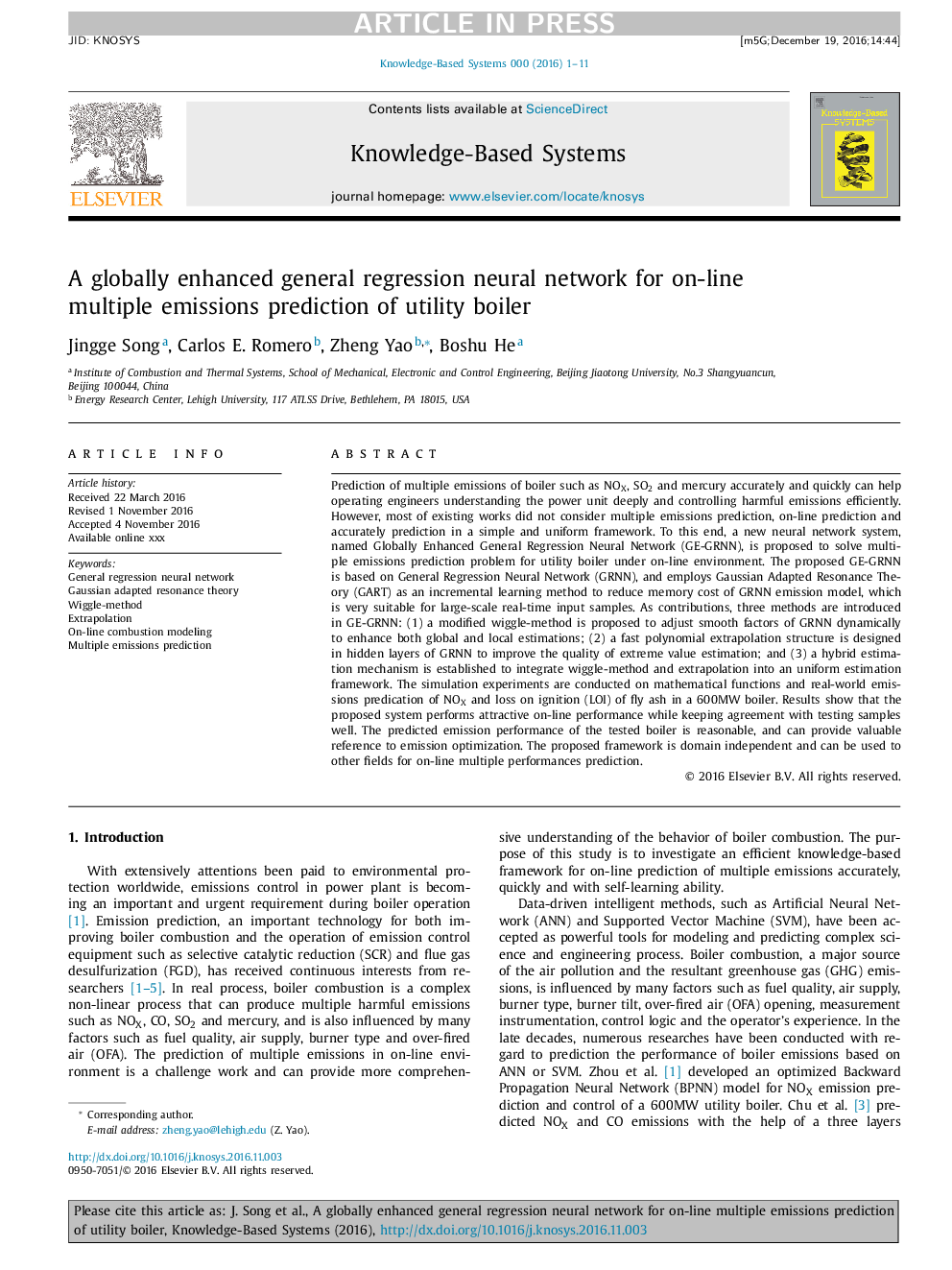| Article ID | Journal | Published Year | Pages | File Type |
|---|---|---|---|---|
| 4946372 | Knowledge-Based Systems | 2017 | 11 Pages |
Abstract
Prediction of multiple emissions of boiler such as NOX, SO2 and mercury accurately and quickly can help operating engineers understanding the power unit deeply and controlling harmful emissions efficiently. However, most of existing works did not consider multiple emissions prediction, on-line prediction and accurately prediction in a simple and uniform framework. To this end, a new neural network system, named Globally Enhanced General Regression Neural Network (GE-GRNN), is proposed to solve multiple emissions prediction problem for utility boiler under on-line environment. The proposed GE-GRNN is based on General Regression Neural Network (GRNN), and employs Gaussian Adapted Resonance Theory (GART) as an incremental learning method to reduce memory cost of GRNN emission model, which is very suitable for large-scale real-time input samples. As contributions, three methods are introduced in GE-GRNN: (1) a modified wiggle-method is proposed to adjust smooth factors of GRNN dynamically to enhance both global and local estimations; (2) a fast polynomial extrapolation structure is designed in hidden layers of GRNN to improve the quality of extreme value estimation; and (3) a hybrid estimation mechanism is established to integrate wiggle-method and extrapolation into an uniform estimation framework. The simulation experiments are conducted on mathematical functions and real-world emissions predication of NOX and loss on ignition (LOI) of fly ash in a 600MW boiler. Results show that the proposed system performs attractive on-line performance while keeping agreement with testing samples well. The predicted emission performance of the tested boiler is reasonable, and can provide valuable reference to emission optimization. The proposed framework is domain independent and can be used to other fields for on-line multiple performances prediction.
Related Topics
Physical Sciences and Engineering
Computer Science
Artificial Intelligence
Authors
Song Jingge, Carlos E. Romero, Yao Zheng, He Boshu,
